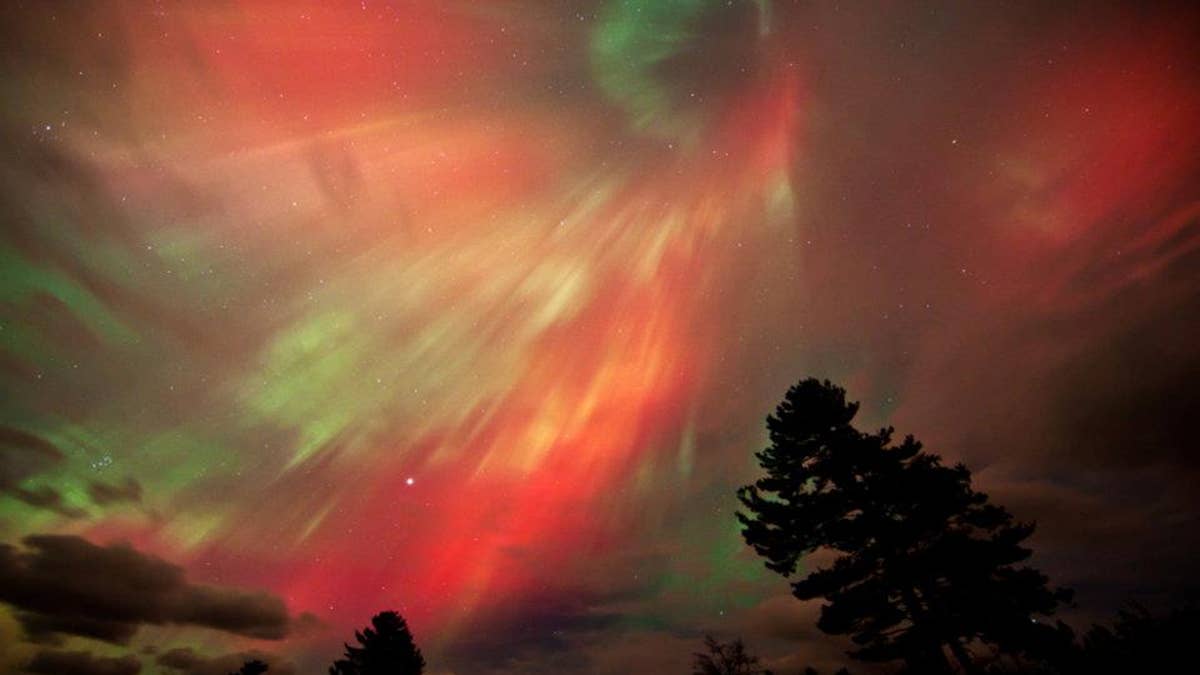
(Shawn Malone / LakeSuperiorPhoto.com)
A giant mass of plasma spat from the sun on Saturday morning hit the Earth Monday afternoon, causing an unusually colored light show that dazzled skywatchers.
Mother Nature's majesty was on display following a coronal mass ejection (CME) that hit the planet at approximately 2:00p.m. EDT on October 24, reported Spaceweather.com, a website dedicated to tracking solar wind, solar storms and other interstellar events.
The impact strongly compressed Earth's magnetic field, the site reported, exposing geosynchronous satellites to solar wind plasma -- and sparking a dazzlingly intense geomagnetic storm.
"Wow, wow, wow! These were the best Northern Lights I've seen since 2004," said Shawn Malone. The photographer told FoxNews.com that the auroras he spied in Northern Michigan were the best in years.
Spaceweather.com reported aurora sightings stretching across the United States, from New Mexico and California to Kansas, Iowa, Maryland and New York.
The event reached the G1 level on NOAA's space weather scale for geomagnetic storms, the lowest level on a five point scale. When such storms reach G5 levels, NOAA warns to watch for problems with the electricity grid and problems with spacecraft and satellites.
Weak power grid fluctuations may have occurred overnight as a result of the G1 storm Monday evening.
"A big geomagnetic storm caused the rare Aurora this far south," meteorologist Brad Nitz of WSB-TV in Atlanta said.
Twitter lit up overnight with reports of the amazing celestial lightshow.
Many skywatchers in the deep south reported seeing unusual red color in the sky, a rare and not fully understood event that sometimes appears during intense geomagnetic storms, Spaceweather said.
